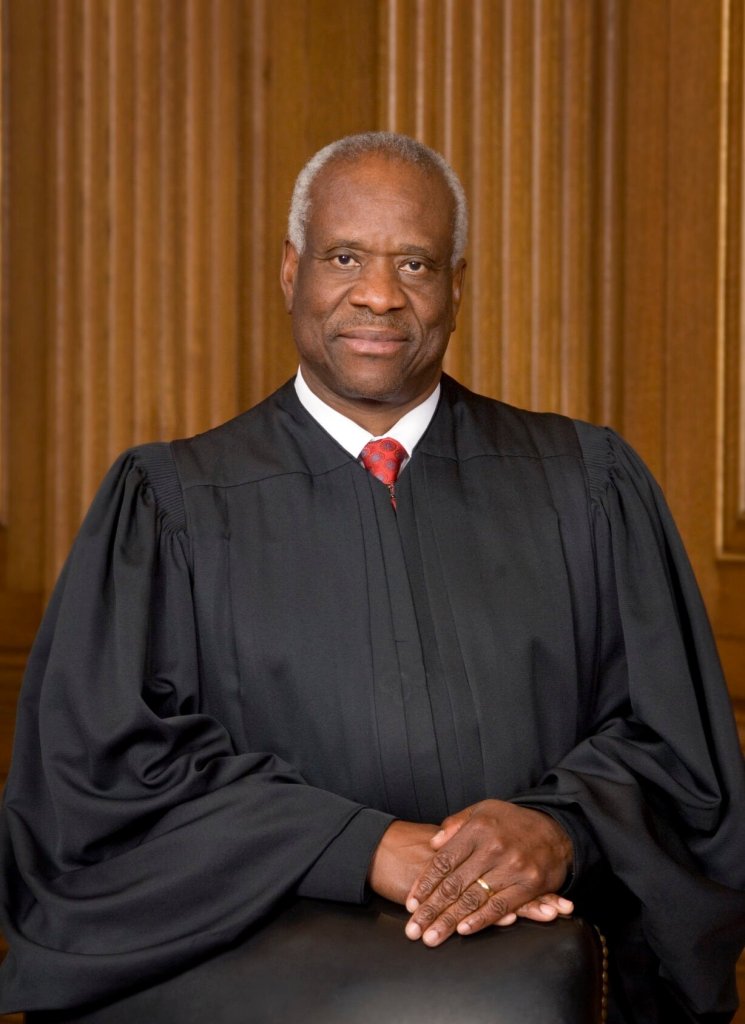Georgia senator plans to continue push for Clarence Thomas monument
Published 9:00 am Wednesday, August 3, 2022

- U.S. Supreme Court Justice Clarence Thomas.
ATLANTA – An online petition to impeach Supreme Court Justice Clarence Thomas, a Georgia native, has garnered more than 1 million signatures.
But it is unclear if calls for impeachment will deter Georgia lawmakers from continuing plans to install a monument of Thomas on the grounds of the state Capitol.
In February, the Republican-dominated state Senate voted along party lines, 32-21, on a monument of Thomas, who is from the Pin Points area of Savannah.
Though the bill was favorably reported out of a House committee 10 days later, the bill did not make it to the floor for a House vote before the legislative session came to an end in April.
Sen. Brian Strickland, a Republican co-sponsor of the bill, confirmed he still supports the monument. Republican Sen. Jason R. Anavitarte out of Dallas, the bill’s chief sponsor, tweeted July 1 his plans to “continue to advocate and re-introduce legislation to have a statue of Justice Thomas on the grounds of the Georgia Capitol.”
He posted the statement in acknowledgement of the 31st anniversary of Thomas’ nomination to the Supreme Court by former Republican President George H.W. Bush. Thomas became the second Black justice to the Court in 1991.
Democrats have argued despite Thomas being a Black man, he does not have the interest of Black Americans as some of his court decisions have negatively impacted Black people.
“So you’re talking about a state with a high number of African Americans and people of color, yet you want to erect a monument with a Supreme Court justice that has done everything in his power to dismantle voting rights for Black people and (is) against affirmative action. … It is insulting for him to gut the Voting Rights Act for his own people,” said Democrat State Sen. Nikki Merritt, who voted against the monument proposal.
“I’m not saying that he has not earned his accolades for studying and getting where he is,” Merritt continued. “But again, he has benefited from affirmative action to be there. He’s benefited from the Voting Rights Acts to be there where he is right now. Other Black people have fought and died for him to be able to even sit there. And now he’s one of the architects of removing rights and removing choice from women.”
MoveOn started a petition in May urging him to resign or else be impeached, stating he “has shown he cannot be an impartial justice.” As of Aug. 2, the petition was reaching 1.3 million signatures.
Referencing Thomas’ June 24 vote to overturn Roe v. Wade which protected women’s right to an abortion, the petition also indicates that Thomas engaged in a conflict of interest when he was the lone vote against a Supreme Court decision to block former President Donald Trump’s request for his presidential records regarding the Jan. 6, 2021 attack on the U.S. Capitol to be turned over to the committee investigating the attack.
According to evidence received by the House Committee investigating the Jan. 6 insurrection, Ginni Thomas, Thomas’ wife, pushed efforts to overturn election results.
Merritt said she and fellow Democrats plan to use newly discovered evidence from the U.S. House committee to oppose a Thomas monument.
“If they’re going to bring it in again, we’re going to tie in that particular issue and relationship especially as we have the September insurrection hearings that are coming out,” Merritt said. “The majority of Georgians would not support such a piece of legislation. I find that very hard to believe, especially when we have women here in Georgia that are not happy with removing their right to choice in this state.”
When questioned ahead of the Georgia Senate’s Feb. 7 vote for the monument, Savannah Republican Sen. Ben Watson, who presented the bill, said he was unaware of information related to Ginni Thomas’ attempt to overturn election results.
“I don’t always agree with what my wife does, too. I know there’s senators that have wives that are in different parties and have different beliefs. I’m here for Clarence Thomas as the Supreme Court justice in the United States,” Watson said at the time.
Watson said a Thomas monument would represent a success story as Thomas had risen from poverty and was the first in his family to attend college.
Opponents of the monument have argued that most monuments are erected after someone dies, or at least upon retirement. Former president and former Georgia Senator Jimmy Carter is the only living person to have a monument at the state Capitol.
“I didn’t agree with everything that President Carter did. He is a great Georgian and a president we should be proud (of). … I would hope that you would feel the same way about Justice Thomas,” Watson said. A Thomas monument would be “a statement to what he has risen from to where he’s achieved now and served with distinction.”
Other namesake monuments at the state Capitol include Confederate leaders, Martin Luther King Jr. and women’s suffrage activist Mary Latimer McClendon.
If a Thomas monument is approved, it would be paid for by private donations, according to the bill proposal.
Georgia House leaders did not respond to requests for comment on plans to carry the bill forward during the next legislative session.



